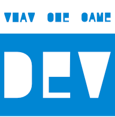When we analyze any of the ratings that we've gotten on this site, on a 1-5 scale we will see almost entirely 1's or 5's with an occasional 4 popping in. Hardly anybody ever rates a 2 or 3. This also includes the old rating system for users from before 2011.
I think one issue with that is that there is no "scaling" given. I know this problem from photographic gear reviews where users that rate stuff on a 1-10 scale will always compare to their other stuff. So when their best piece of equipment is something out of the midrange they will still rate it with 9 or 10 which often results in "good" gear getting ratings like 9.2 etc while actual high-end stuff will get like 9.7 or so and the largest portion of the range ends up unused. Now the moment you explicitly give a scaling (usually by associating words with the different ratings) the spread "opens up".
If next to the rating "button" it says something like "5 - genius, 4 - useful, 3 - somewhat useful, 2 - missed the point, 1 - wrong" then i'm pretty sure people will be far less likely to give genius and wrong ratings...







